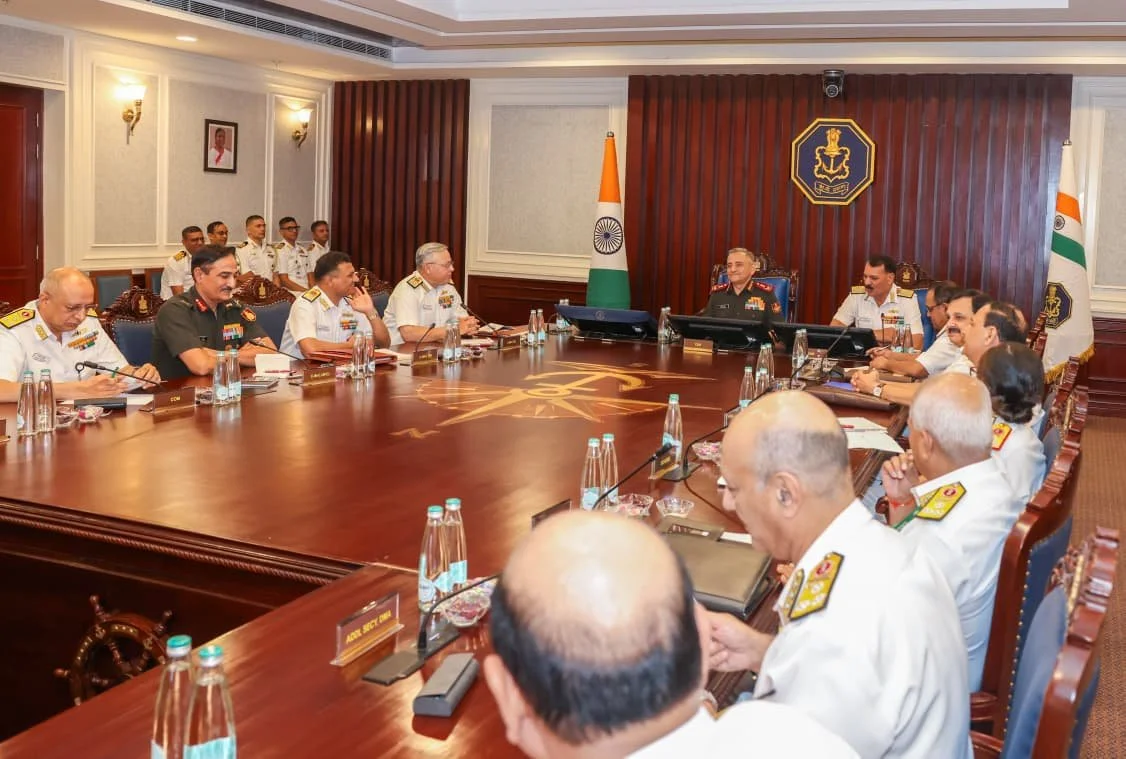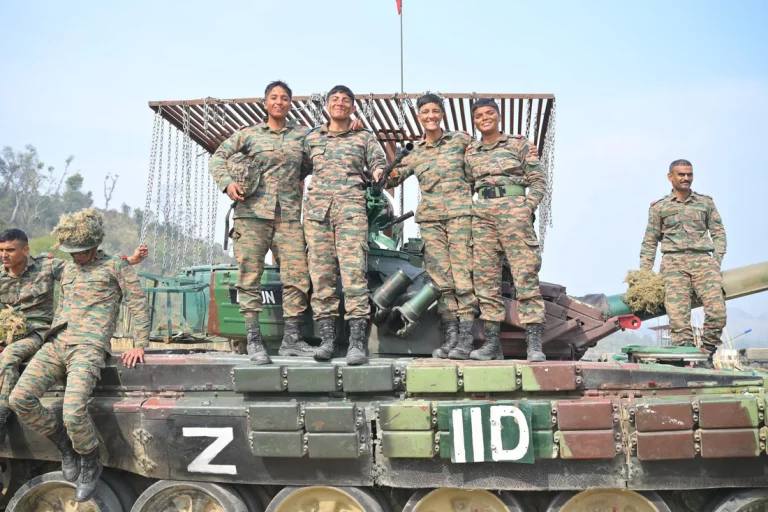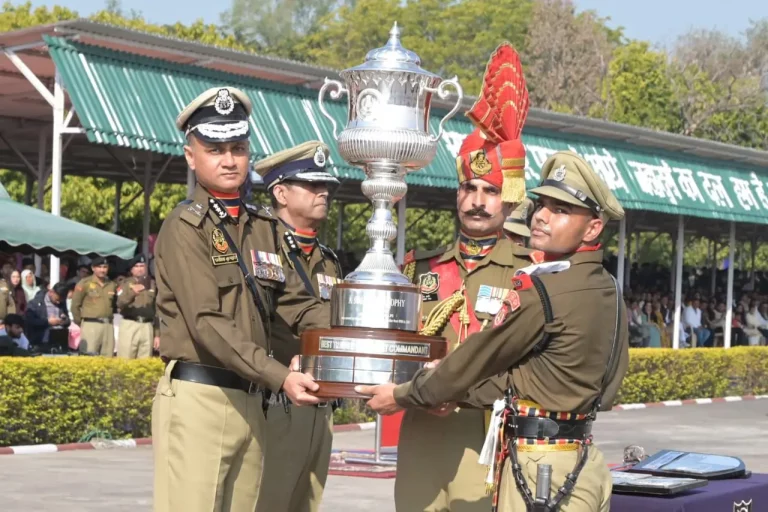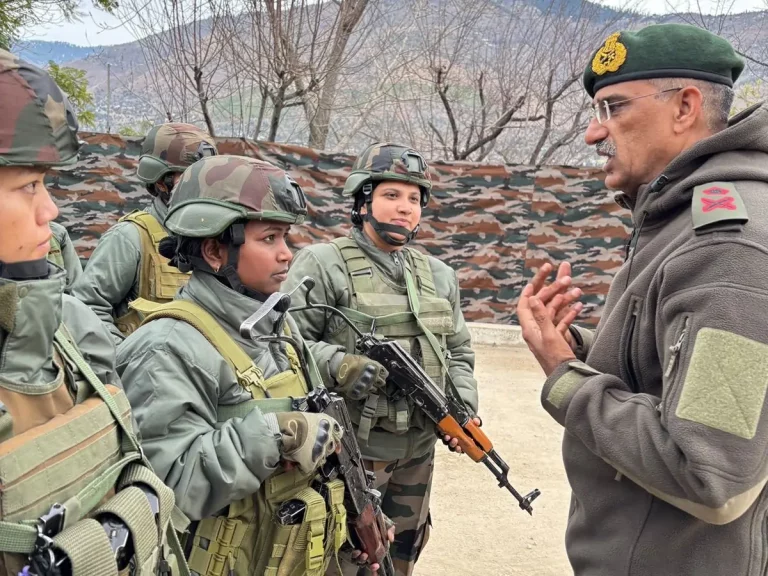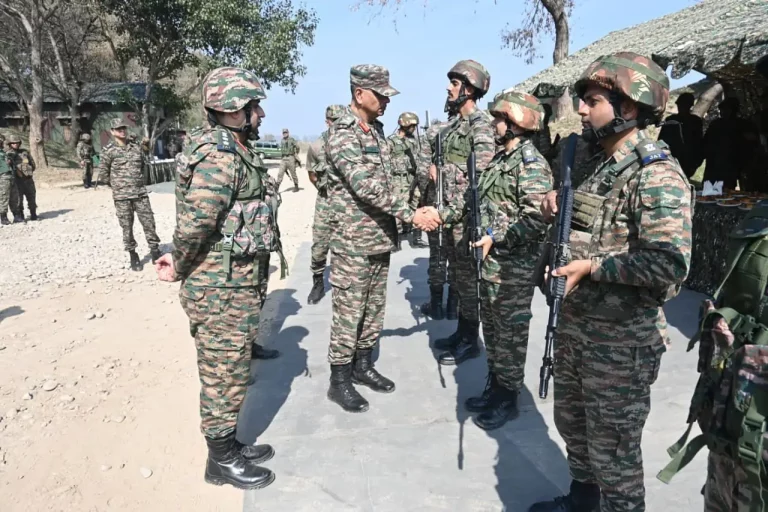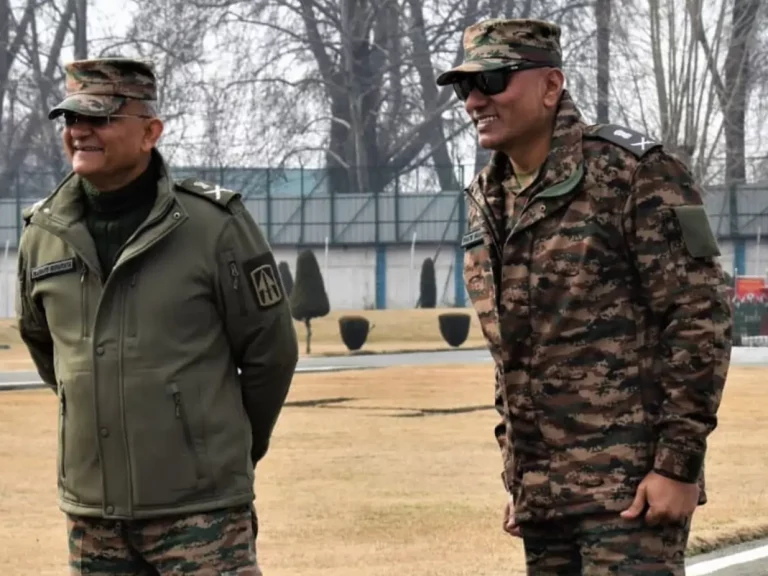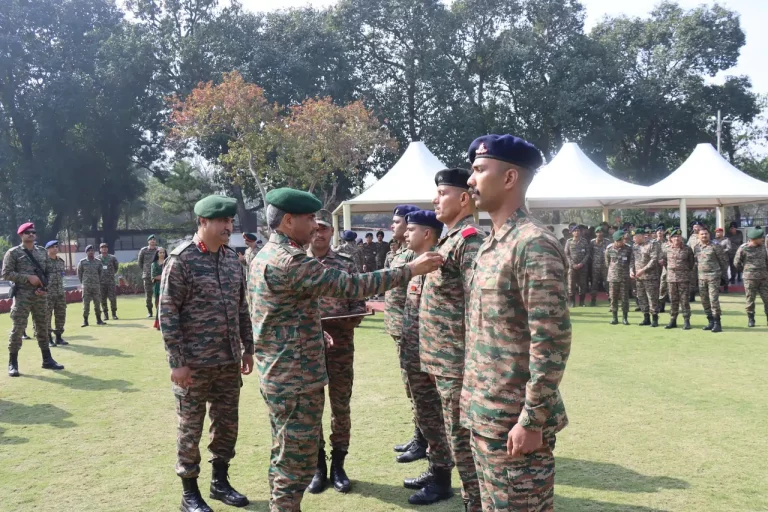The second edition of the Naval Commanders’ Conference 2025 (CC 2025/2) recently wrapped up at Nausena Bhawan, New Delhi, following three days of high-level discussions focused on crucial maritime matters from October 22 to 24. This apex forum served as a vital platform for Naval Commanders to evaluate operational preparedness, address maritime security challenges, develop capabilities, and foster Tri-Service integration.
The conference began with an inaugural address by the Chief of the Naval Staff (CNS), who underscored the Navy’s pivotal role in protecting India’s maritime interests amid rapidly changing geostrategic environments. He highlighted the Navy’s progress towards becoming a ‘Combat Ready, Credible, Cohesive and Future-Ready Force’ and praised recent achievements that included operational deployments, advancements in technology, and collaborative initiatives with other military branches. The CNS also restated the Indian Navy’s vision of achieving full Aatmanirbharta (self-reliance) by the year 2047, emphasizing the importance of innovation, technology adoption, and initiatives driven by the Innovations for Defence Excellence (iDEX) program.
On October 23, Hon’ble Raksha Mantri Shri Rajnath Singh addressed the conference, engaging with the Commanders and commending the Indian Navy’s strong deterrent capabilities and readiness for operational activities. He characterized the Navy’s presence in the Indian Ocean Region (IOR) as a stabilizing force, beneficial for friendly nations and a deterrent to those seeking to create instability. The Raksha Mantri reiterated the pressing need for a self-reliant Navy, asserting this commitment is fundamental to a confident and powerful India.
He also emphasized the necessity of leveraging modern technology and advanced tactics to maintain an edge over adversaries, noting the increasing significance of autonomous and uncrewed systems in contemporary maritime warfare.
The conference featured interactions with key defense leaders, including the Chief of Defence Staff (CDS), the Chief of the Air Staff (CAS), and the Cabinet Secretary. The CDS particularly emphasized the imperative of joint operations, integration among services, and the optimization of resources to enhance national security outcomes.
During the event, five important naval publications were introduced, including the Regulations for Naval Armament Service, a GeM Handbook, and a Foreign Cooperation Roadmap. Additionally, a digital platform, ‘NIPUN’ (Naval Intellectual Portal for Unified Knowledge), was launched to facilitate a comprehensive knowledge-sharing hub for intellectual and operational research exchanges within the naval community.
On the conference’s sidelines, the ‘Sagar Manthan’ event on October 22 brought together Naval Commanders alongside strategic experts and thought leaders to delve into pressing contemporary maritime and security challenges.
The outcomes of the conference reinforced the Indian Navy’s commitment to fortifying India’s maritime frontiers, enhancing interoperability among various Services, and steering the nation towards a self-reliant and technology-focused maritime force.
